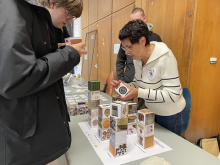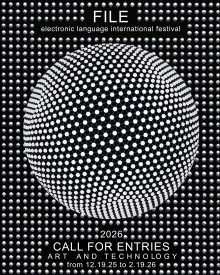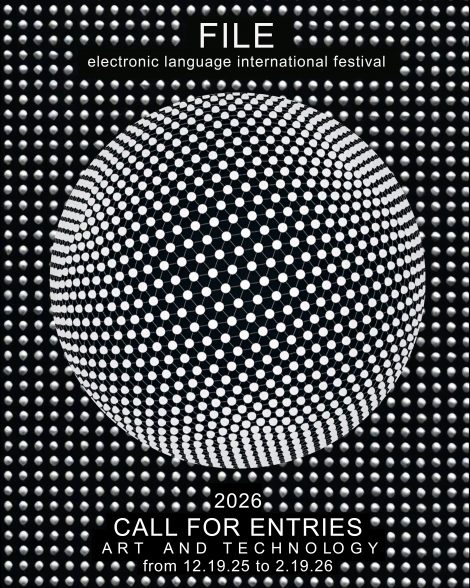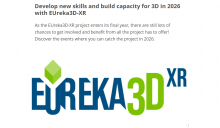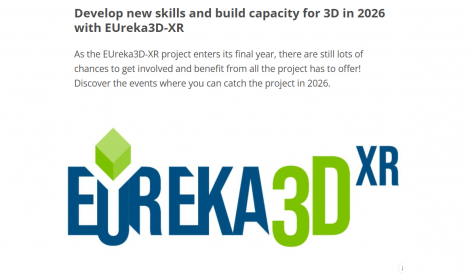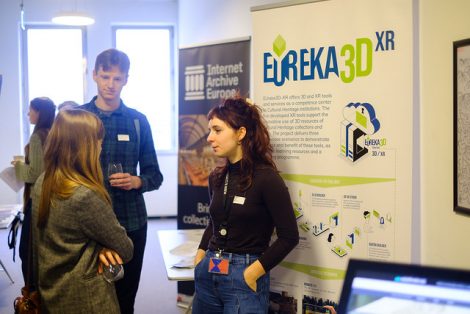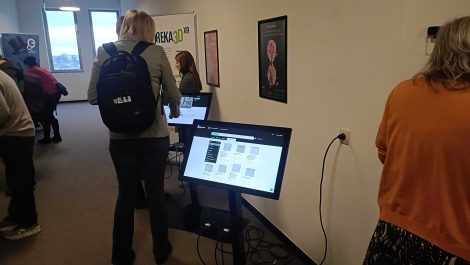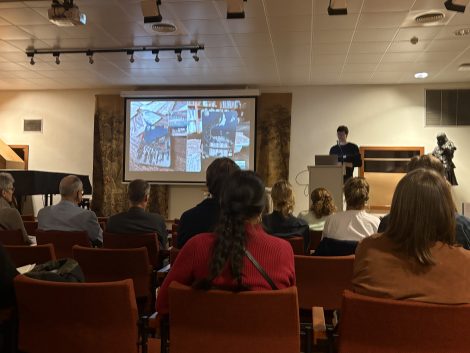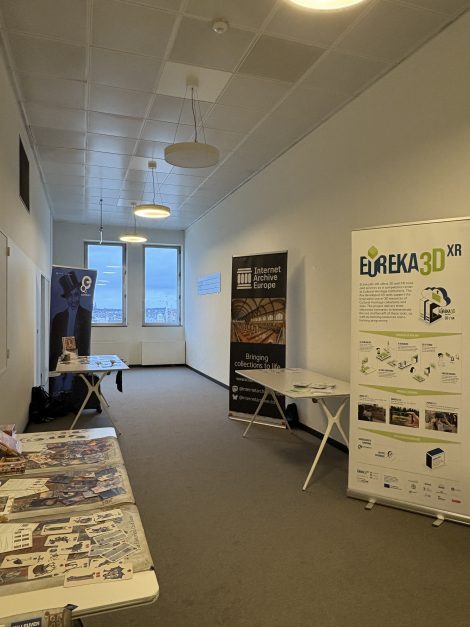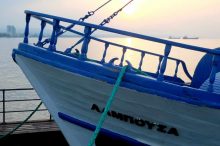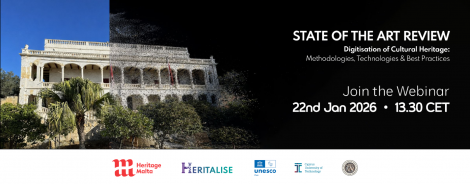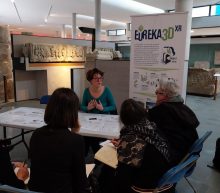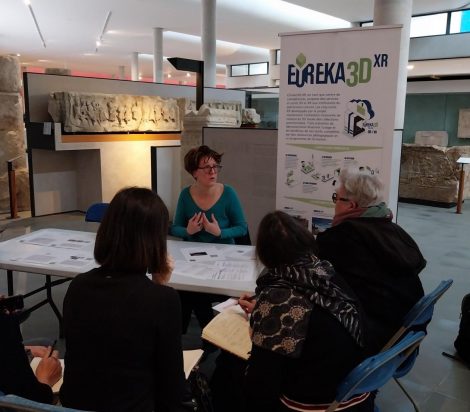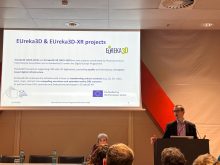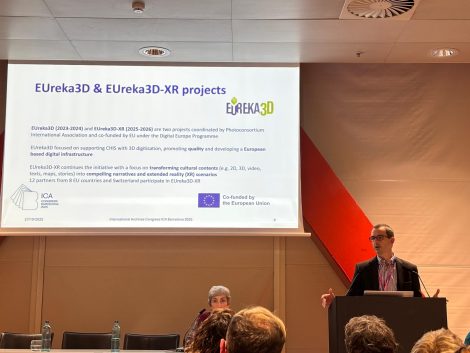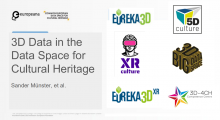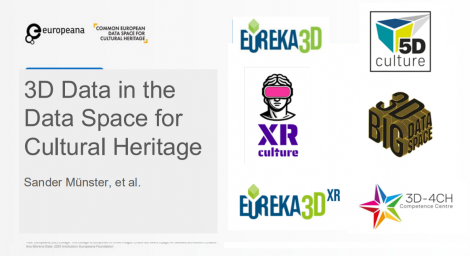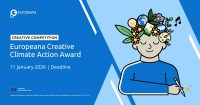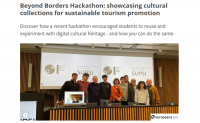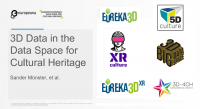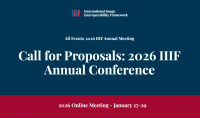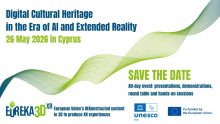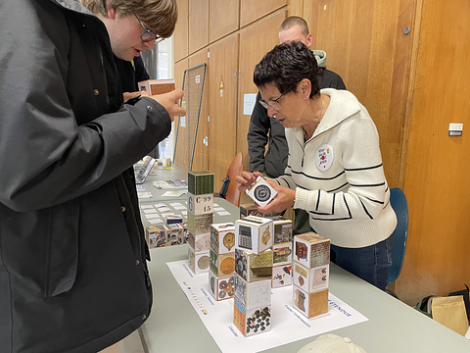
On 11 and 12 October 2025, Bibracte hosted a stand in Dijon during the Fête de la Science. On this occasion, a construction game entitled “The Ancestors of Digital Technology and Extended Reality” was presented, along with the EUreka3D-XR project, to an audience of around one hundred people, mostly families.
The aim of this game is to explain the principles of digital technology and extended reality to the public, and to young people, by placing them within the long history of knowledge and techniques, in line with the idea that we are “standing on the shoulders of giants”. This approach takes the form of a construction game made up of cubes to be stacked chronologically, from Antiquity to the digital age.
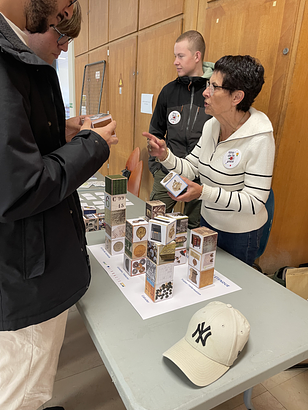
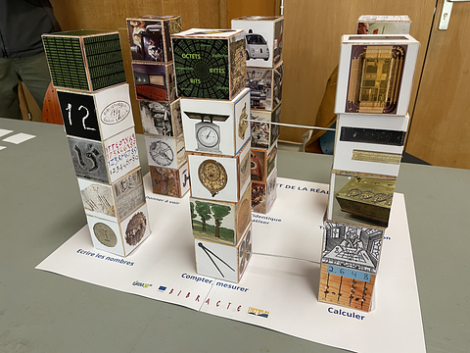 The goal of the game is to identify the theme and period of each of the 36 wooden cubes to stack them on the bases corresponding to six main themes: Writing numbers, Counting and measuring, Calculating, Producing identical copies and automating, Processing information and Visualising. The 216 illustrations (one on each face of the cubes) are drawn from the collections of Bibracte, Europeana and Wikimedia Commons. Some illustrations appear identically on several cubes to highlight transversal links between themes, using a system of magnets and small steel rods. These links emphasise major inventions that have benefited a wide range of fields, such as the printing press, both for the reproduction of identical copies and for the dissemination of information.
The goal of the game is to identify the theme and period of each of the 36 wooden cubes to stack them on the bases corresponding to six main themes: Writing numbers, Counting and measuring, Calculating, Producing identical copies and automating, Processing information and Visualising. The 216 illustrations (one on each face of the cubes) are drawn from the collections of Bibracte, Europeana and Wikimedia Commons. Some illustrations appear identically on several cubes to highlight transversal links between themes, using a system of magnets and small steel rods. These links emphasise major inventions that have benefited a wide range of fields, such as the printing press, both for the reproduction of identical copies and for the dissemination of information.
This game will lead to the production of an Open Educational Resource, included among the project deliverables, enabling cultural institutions to reproduce it and adapt it to their own context.


